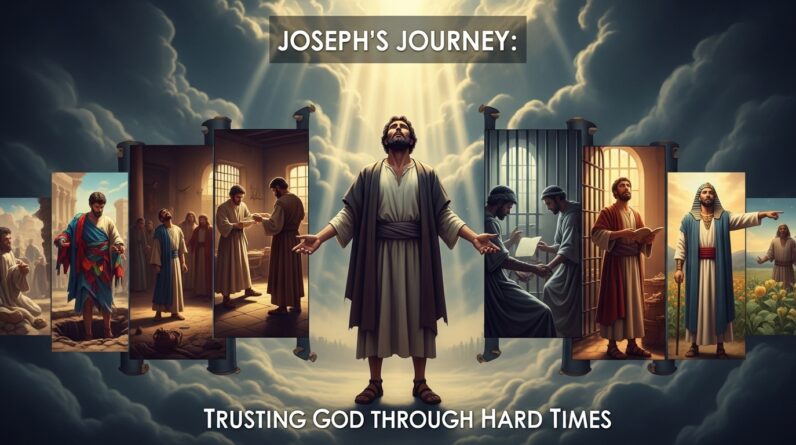The Courage of Esther: What It Teaches About Risk and Faith
Opening the book of Esther introduces you to a world where bravery, obedience, and divine timing blend seamlessly. If you’ve ever found yourself hesitating at the precipice of a life-altering decision or questioning the potency of your faith, Esther’s story offers a compelling roadmap. Set in the opulent Persian Empire, her narrative speaks volumes about courage in the face of danger and trusting a plan greater than oneself.
Understanding the Context of Esther
Imagine you’re in ancient Persia, under King Xerxes’ rule, where the law of the king is irrefutable. Now, consider Esther, a young Jewish woman who finds herself queen of this vast empire. Her cousin, Mordecai, learns of a vile plan to annihilate the Jews, masterminded by Haman, a high-ranking official. It’s within this perilous juncture that Esther’s courage unfurls.
Her journey begins with a choice—one that risks her life. Approaching the king unsummoned could mean death, yet withholding her identity could mean the demise of her people. Esther’s courage isn’t just about taking a leap of faith; it’s about making a calculated decision in the face of potential personal loss, trusting that her role in the kingdom wasn’t an accident but providence.
Esther’s Courage Lesson: Obedience to a Greater Calling
When you delve into the essence of what makes Esther’s story so impactful, her obedience to a call greater than herself stands out. She embodies the principle of obedience in its purest form. Despite knowing the possibility of perishing, her response remains steadfast, underscoring a commitment to her faith and people. Esther exemplifies the kind of bravery that doesn’t come naturally but is cultivated through conviction and purpose.
When Mordecai implores her to intervene, he echoes a crucial reminder that you, too, might often overlook: “And who knows but that you have come to your royal position for such a time as this?” (Esther 4:14, NIV). Her story encourages you to reflect on moments when you hesitated to take action in your life. How do you discern when obedience to a higher calling outweighs your fear of risk?
The Significance of Timing in Esther’s Story
Timing is everything, or so the saying goes. In Esther’s narrative, the intricacies of timing are pivotal. Before approaching the king, Esther invites him and Haman to a series of banquets. This strategy not only buys her time but allows the situation to unfold in a way that starkly reveals Haman’s intentions. Esther’s approach is methodical and calculated, demonstrating that courage is also about patience and wisdom.
In life’s challenges, the uncertainty of timing can either paralyze you or propel you forward. Esther’s experience reminds you that courage might require waiting for the right moment to act. You may often find yourself in seasons of waiting, a space where faith seems to grow quietly, nurturing your ability to step forward bravely when the time is ripe.
Trusting in God’s Unseen Hand
Esther’s tale is a vivid illustration of how divine involvement doesn’t always present itself visibly. God’s name isn’t explicitly mentioned in the entire book, yet His presence resonates through every twist and turn of the narrative. Her story is a testament that faith lives in uncertainty, thriving in situations where God’s plan might not be overtly clear but is always unfolding.
You might be familiar with those moments where direction is nebulous, and the path isn’t straightforward. Esther inspires you to recognize that sometimes, faith is choosing to step into the unknown assured that your steps are guided even when they feel shaky. Trust in an unseen hand, much like Esther, turns your focus outward and beyond immediate fears, reinforcing a belief in a bigger picture.

Esther’s Relevance to Modern-Day Faith Challenges
Bringing Esther’s story into contemporary life, her experiences resonate profoundly with the challenges faith faces today. Whether you’re combating societal pressures, standing against injustice, or confronting personal tribulations, her courage offers guidance.
The notion of possessing a voice, and using it at the right moment, holds vital importance. In an era where opinions are plentiful and voices loud, discernment and timing are qualities that differentiate knee-jerk reactions from thoughtful interventions. Esther’s courage isn’t just in speaking out but in knowing when and how to do so effectively.
Modern believers often grapple with the tension of living faithfully in secular societies. Esther’s story provides a framework for navigating these waters—an invitation to seek divine wisdom and a reminder that your position, wherever it may be, has purpose. You might find Esther’s model of strategic faith especially relevant when wrestling with doubts or fears about standing up for your beliefs.
Learning From Esther: Actionable Steps
- Evaluate Your Calling: Reflect on your current circumstances. Ask yourself, “For such a time as this, what might I be called to do?” Sometimes, identifying your purpose in a situation can clarify the need for courage.
- Study Divine Timing: Recognize that sometimes waiting is as much a part of courage as acting. Cultivate patience when the timing feels uncertain, and seek wisdom to understand when the moment to act has arrived.
- Faith in the Unseen: Practice trusting in the divine plan even when it’s not evident. Let Esther’s example remind you that hope and belief can exist even when God’s presence isn’t explicitly clear.
Conclusion: Embodying Esther’s Courage in Your Life
The courage of Esther, nuanced with risk-taking in faith, can be transformative for you today. Her tale invites you to channel her bravery and conviction in your challenges. Whether navigating personal or professional crossroads, her story serves as a flourishing guide on coupling courage with timing and obedience.
As you go forth, remember that the lessons of Esther’s courage aren’t confined to ancient history but are vibrant blueprints adaptable to modern-day struggles. The risks you encounter, though daunting, might just be the divine pathway to fulfilling your life’s purpose.
Explore More
For further reading and encouragement, check out these posts:
👉 7 Bible Verses About Faith in Hard Times
👉 Job’s Faith: What We Can Learn From His Trials
👉 How To Trust God When Everything Falls Apart
👉 Why God Allows Suffering – A Biblical Perspective
👉 Faith Over Fear: How To Stand Strong In Uncertain Seasons
👉 How To Encourage Someone Struggling With Their Faith
👉 5 Prayers for Strength When You’re Feeling Weak

📘 Jesus and the Woman Caught in Adultery – Grace and Mercy Over Judgement
A powerful retelling of John 8:1-11. This book brings to life the depth of forgiveness, mercy, and God’s unwavering love.
👉 Check it now on Amazon
As a ClickBank Affiliate, I earn from qualifying purchases.
Acknowledgment: All Bible verses referenced in this article were accessed via Bible Gateway (or Bible Hub).
“Want to explore more? Check out our latest post on Why Jesus? and discover the life-changing truth of the Gospel!”








